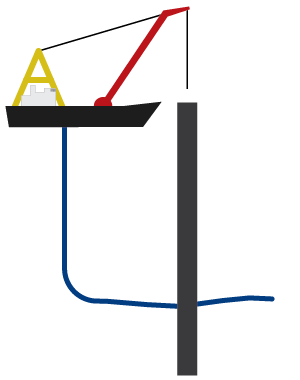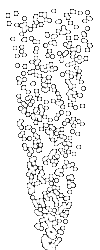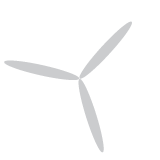















This program aims to develop the knowledge and technology to significantly improve predictions of the effect of water quality on ship resistance and underwater radiated noise of cavitating ship propellers and pile driving for offshore wind turbines. We want to achieve a breakthrough on the following three long-standing problems in the Maritime Industry:
For each of these three issues, "Water quality" refers to the dissolved and free gas content (bubbles), the chemical and particulate content of water. The economical and societal impact is that air-lubrication promises net power reductions of up to 15% of the current standard. Another impact of the proposed research is that hull vibration levels can be predicted with higher accuracy, resulting in optimization of propeller efficiency, recently shown to reduce power requirements by 10-15%.
A summary of the AQUA program can be downloaded here.